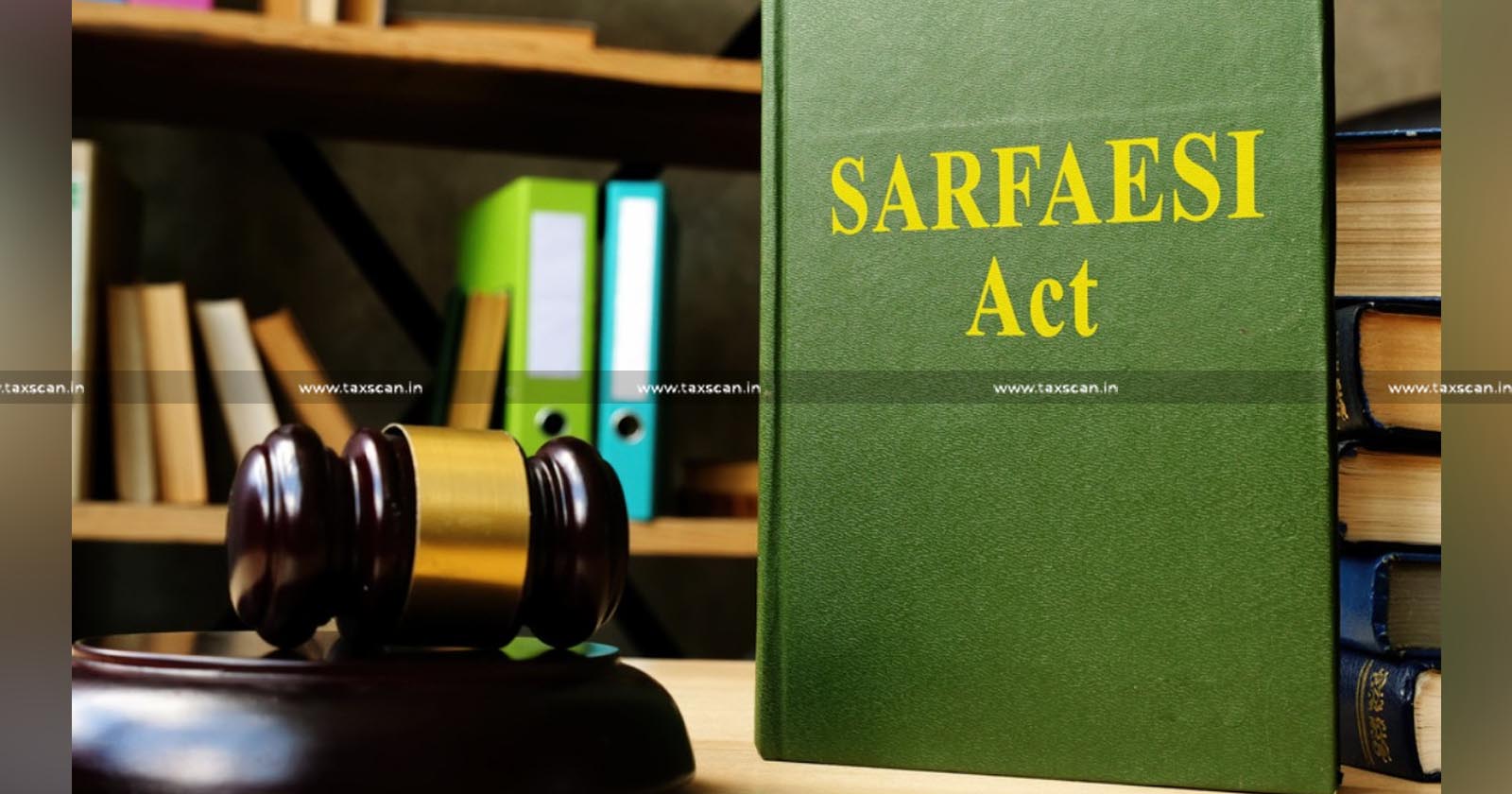Possession Over Assets of Corporate Debtor under SARFAESI Act not a Bar to Filing Petition u/s 7 of IBC: NCLT [Read Order]
It was found that combined reading of Section 11(b), (ba) and the second explanation implores makes it clear that the Section 11 (a) to (d) does not prevent the corporate debtor to initiate CIRP against another corporate debtor

Possession Over Assets – Corporate Debtor – SARFAESI Act – Bar to Filing Petition- IBC – NCLT – taxscan
Possession Over Assets – Corporate Debtor – SARFAESI Act – Bar to Filing Petition- IBC – NCLT – taxscan
The Kolkata Bench of National Company Law Tribunal ( NCLT ) have held that mere possession over assets of the corporate debtor under the Securitisation and Reconstruction of Financial Assets and Enforcement of Securities Interest ( SARFAESI ) Act,2002 does not prevent the financial creditor from preferring an application under section 7 of the Insolvency and Bankruptcy Code ( IBC ), 2016.
The Corporate Debtor Roadwings International Pvt. Ltd. by way this application preferred under Section 65 of the I&B Code against the Financial Creditor Srei Equipment Finance Limited has sought for rejection of the company petition, on the ground that there is no existence of debt and default as claimed in the company petition and the financial creditor has fraudulently and maliciously preferred the Section 7 application for initiation of CIR Process in respect of the corporate debtor.
Achieve Success: Expert-Led Courses for Tax and Finance Pros, Click here
The claim of the Financial Creditor against the Corporate Debtor arises from the agreements which were executed between the parties pursuant to the financial assistance for purchasing various assets, on being approached by the Corporate Debtor to the Financial Creditor.
The Applicant submitted that vide an order the Adjudicating Authority approved the resolution plan. In terms of the Resolution Plan, the Financial Creditor is entitled to recover the debts owed by the Corporate Debtor. Per contra, the Respondent submitted that the debt and default arising out of the four agreements in dispute were settled and paid off by the corporate debtor and there is no debt and default in respect of those four agreements as claimed by the financial creditor.
The tribunal noted that financial liability in respect of agreements which were subject matter of the Arbitration Proceedings had already been discharged therefore there was nothing to consider for the tribunal.
Achieve Success: Expert-Led Courses for Tax and Finance Pros, Click here
It was viewed that it is a settled position of law that the Adjudicating Authority in a summary proceeding cannot adjudicate disputed questions of facts and decide on issues relating to allegations of fraud.
It was noted that in Shelendra Kumar Sharma v. DSC Ltd, 2019 the NCLAT has held that wherein it has been held that whether the documents are forged or not is concerned, it cannot be determined by the Adjudicating Authority or this Appellate Tribunal and therefore, the Adjudicating Authority rightly not deliberated on such issue.
The question was whether mere possession of assets of the corporate debtor under Sarfaesi act bars filing of petition under section 7 of the code. It was noted that a secured creditor having possession over the assets of the corporate debtor does not lose its rights to file an application under Section 7 of the Code.
The tribunal further noted that in A. Navinchandra Steels Private Limited vs. SREI Equipment Finance Limited and Ors., 2021 has observed that Section 7 is an independent proceeding, as has been held in catena of judgments of the Court, which has to be tried on its own merits.
Achieve Success: Expert-Led Courses for Tax and Finance Pros, Click here
Based on the above, the tribunal while refuting the submission of the corporate debtor that the applicant was already in possession of the assets which bars filing of a petition under section 7 observed that mere possession of the security assets of the corporate debtor, right of a secured creditor to move an application under Section 7 of the I&B Code does not efface, as a Section 7 proceeding is an independent process.
It was argued that since section 11 (ba) was introduced after the second explanation therefore the former will not be governed by the latter. The tribunal while refuting the contention as well observed that the legislature would have expressly intended not to make the second explanation applicable to Section 11(ba) which has come later, then a clarificatory explanation would have been inserted against the Section 11(ba).
While disposing of the application, the Ms. Bidisha Banerjee ( Judicial Member ) and Shri Arvind Devanathan ( Technical Member ) found that combined reading of Section 11(b), (ba) and the second explanation implores makes it clear that the Section 11 (a) to (d) does not prevent the corporate debtor to initiate CIRP against another corporate debtor.
To Read the full text of the Order CLICK HERE
Support our journalism by subscribing to Taxscan premium. Follow us on Telegram for quick updates


